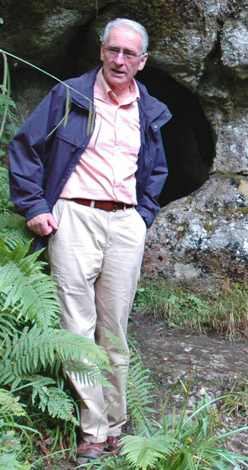
Tony Bazley* thinks we have completely lost it.
Geoscientist 18.11 November 2008
Have you spent hours, as a student or later, poring over abstract art in an attempt to gain some inner meaning? Did you finally give up and stick with the Old Masters, whose brilliant techniques and language are clear? If the answer to the last question is “Yes”, perhaps you are still a little worried you have missed something or that maybe, horror of horrors, you are an intellectually inferior being.
Have you spent hours poring over abstract science or, should I say, abstracts of scientific papers? Did you get frustrated with the abstruse terminology and worry that you had missed something? Or - again that nagging question - maybe you are intellectually below par.
An abstract is a summary of the contents of an article. When it is written in a learned journal, what is its audience? Presumably, other learned geologists. So it will be quite technical; but should it not be aimed at all qualified geologists rather than just the specialists? Should it say whether the article is of national or international significance, and if so, why? Should it be written so that a science journalist can quickly appreciate its significance?
I cannot manage to read even a small proportion of the learned papers that land on my desk. As an editor of an Irish Earth science magazine I specifically want to keep up to date with papers on Irish topics. So first, I scan titles.
Coincident swath acoustic backscatter and bathymetry for the interpretation of shallow-water sediment composition and processes. Should I know that this is about Clew Bay in western Ireland and tells a significant story about the local Quaternary sediments? Titles are important!
If attracted by the title I read the abstract. Hurrah for Tanner & Sutherland in their paper on The Highland Border Complex: a paradox resolved. They manage that rare achievement, an abstract of less than 100 words. Most authors go to the absolute limit allowed (for our Journal, 200 words). So how does a 10-page paper Defining the Himalayan Main Central Thrust in Nepal justify a 350-word abstract?
Do abstracts do research justice? My answer is ‘mostly not’. They usually, but not every time, say where the research was carried out and after that they can make tough reading. No allowance is made for geologists who don’t specialise in the topic, and if you are a science journalist you have little or no chance of sniffing out a story. Yet there are stories there, about prospective volcanic eruptions, geochemical results that spell problems for some farmers and past happenings to fossil organisms that relate to our changing environment today.
Is it showing an intellectual inferiority to call for shorter abstracts, written in a slightly less technical language, that really highlight the significant findings? OK, with the computer and library systems you can do a ‘key-word’ search but even then I maintain a well-written abstract is vital.
Science abstracts – we have lost the art.
* Tony Bazley is Editor of ES2K